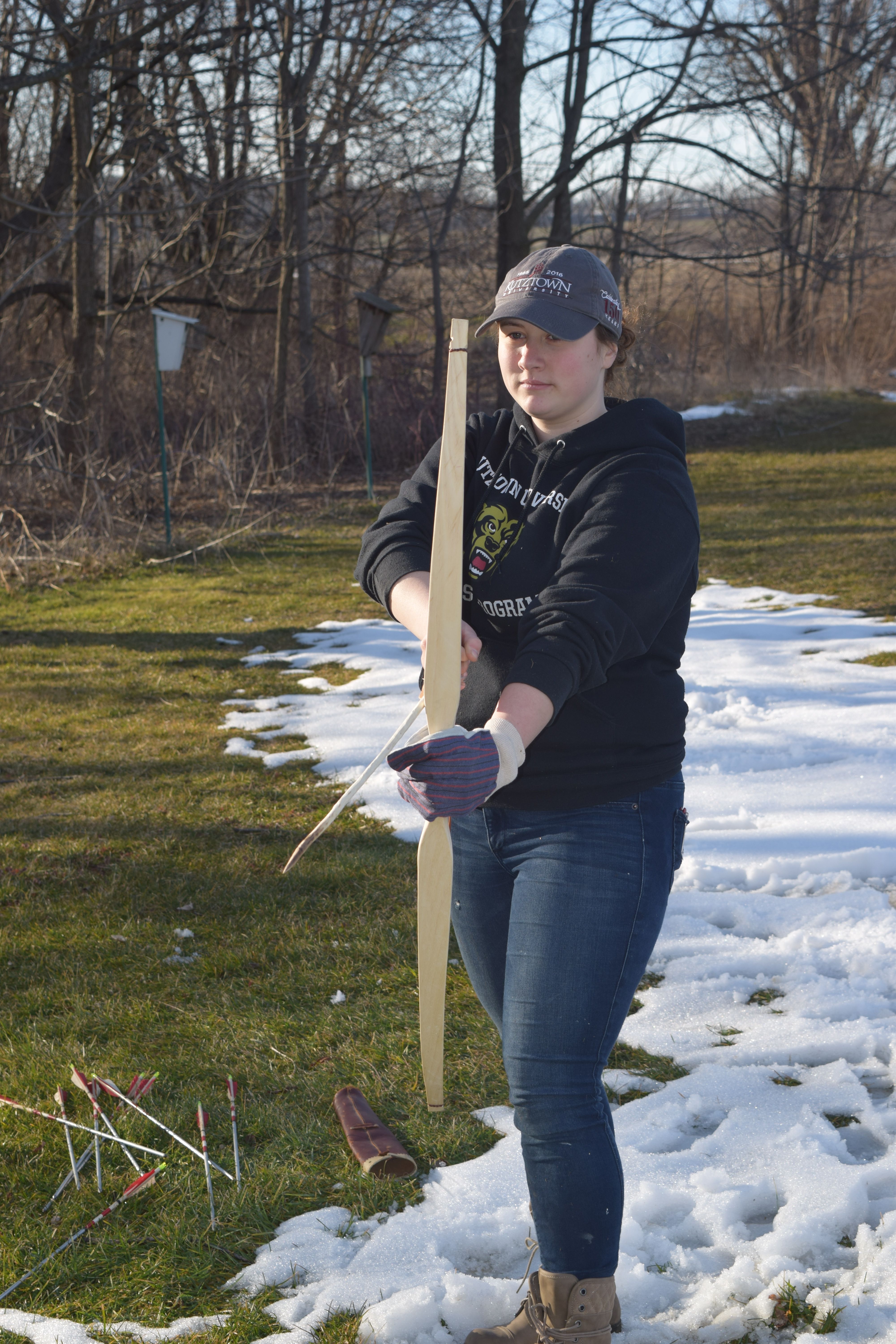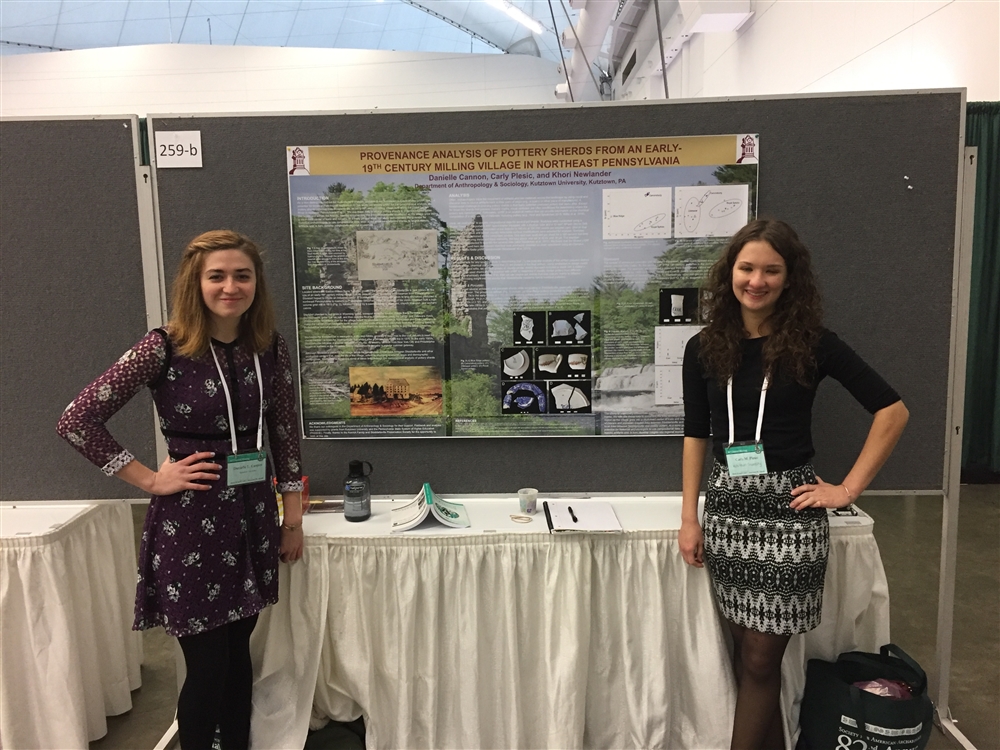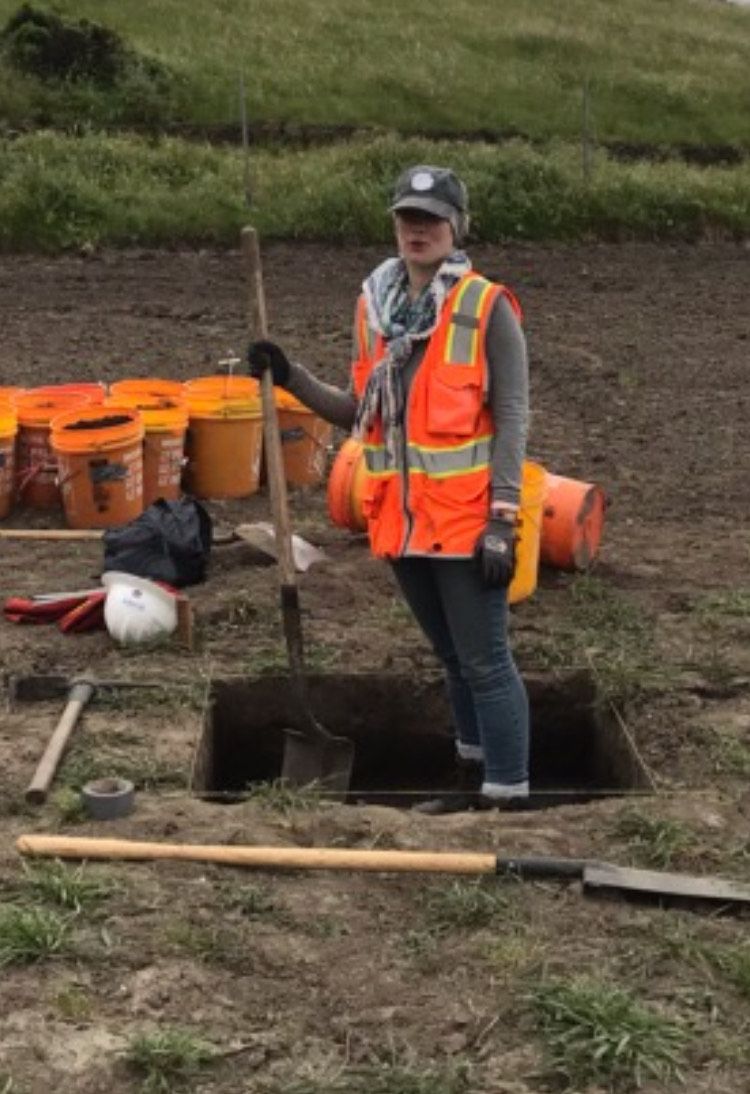Dig in to Archaeology at KU!
At Kutztown University, students can enroll in a variety of introductory and topical courses in archaeology (e.g., New World Archaeology, Historical Archaeology, Classical Archaeology), as well as upper-level courses in archaeological method and theory. These courses draw on examples from more than 3 million years of human history and sites located around the world to illustrate how archaeologists do archaeology—that is, how archaeologists infer human behavior and sociocultural organization from the material traces they recover.
While these courses may whet your appetite, archaeology is a hands-on discipline. To really understand how archaeology works and what we can learn from it, students have to get their hands dirty digging in the field, replicating ancient technologies and practices, or poring over countless artifacts in the lab. Fortunately, courses in archaeology effectively synergize with an active research program that provides students training in field and laboratory methods.
Presently, Dr. Khori Newlander, the resident archaeologist, is engaged in archaeological research on both historic and prehistoric sites in eastern Pennsylvania. These projects provide students with ample opportunities to pursue archaeological research.

Sara Wingert (Class of 2018) tests a bow and arrow she made to better understand the factors that led to the adoption of this technology.
-
Historic Archaeology at Stoddartsville & Joanna Furnace
Archaeological research at Stoddartsville, a 19th-century milling village in northeast Pennsylvania and the site of the Summer Field School, and Joanna Furnace, a 19th-century ironworks located a little south of campus, is yielding material evidence of the pervasive, interrelated impacts of industrialization on work and domestic life over the last 200 years.
-
Prehistoric Archaeology at the "KU Site"
Archaeological research at the KU Site, a Late Archaic to Early Woodland period site located on campus, is yielding evidence of the activities that occurred on site, while situating the KU site within the larger system of land use and social interaction that characterized east-central Pennsylvania 6000-3000 years ago.
-
Public Outreach
Dr. Newlander and his students consult with a number of parties on the preservation, management, and investigation of other local prehistoric and historic archaeological sites, including: a series of (perhaps) Native American stone mounds in Alburtis, PA; a house in Reading, PA, that may have served as a stop on the Underground Railroad; and the Providence Township School House site located on the grounds of Augustus Lutheran Church in Trappe, PA.
-
Public Education
Dr. Newlander and his students regularly engage in public education, including: inviting teachers from Pocono Mountain School District to tour and learn about the history in their backyards at Stoddartsville; teaching children about artifacts at Emmaus Public Library, and offering Archaeology Merit Badge to Scouts as part of Kutztown’s Annual Merit Badge University.

Dani Cannon and Carly Plesic (Class of 2018) present research at the Annual Meeting of the Society for American Archaeology.
Students have used the disciplinary knowledge and analytical skills honed through participation in these research projects to develop presentations delivered at local, regional, and national conferences, including the Symposium on the Application of Geophysics to Engineering and Environmental Problems, the Annual Meeting of the Society for Pennsylvania Archaeology, the Middle Atlantic Archaeological Conference, and the Annual Meeting of the Society for American Archaeology. Additionally, several students have collaborated with Dr. Newlander to publish articles that detail some of the results of this research.
Several students have built on their experiences conducting archaeological research at Kutztown to pursue graduate study in: experimental archaeology and material culture at University College Dublin, public history at Duquesne University, and art history at John Cabot University.
Other students are employed developing archaeological exhibits at community parks in southeastern Pennsylvania and conducting contract archaeology in southern California. In short, students who participate in archaeological research at Kutztown University are well-equipped to continue to do archaeology when they leave.
As a nod to the strength of the program, high-achieving Kutztown Anthropology majors who gain experience in archaeology are guaranteed admission into the Master of Arts Program in Applied Archaeology at Indiana University of Pennsylvania.
For more information about Archaeology at KU, contact Dr. Khori Newlander (newlander@kutztown.edu, Old Main Room 459). You can also check us out on Facebook: Kutztown University Archaeology.

Jessica Scola (Class of 2018) conducting contract archaeology in southern California.






